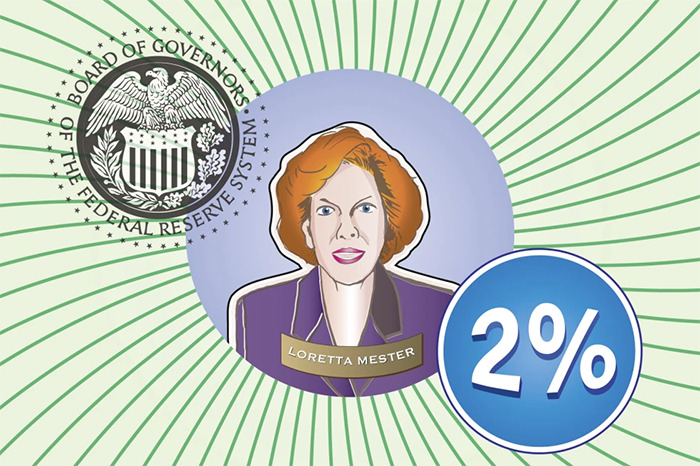
Erika Ayers Badan: You Are The Problem (And The Solution)
This is an episode for people grappling with how to manage and how to embrace AI. Good managers in the future will seamlessly balance being…
Thought Leader: Erika Ayers Badan

Having worked in the Federal Reserve system her entire career, Loretta Mester rose to become president of the Cleveland Fed for a decade until her retirement on June 30.
During most of her years on the Fed’s interest-rate-setting committee, Mester was likely to favor relatively higher interest rates to contain inflation. This stance earned her the label of “hawk,” which describes officials who typically worry most about controlling inflation. (“Doves,” by contrast, tend to focus more on keeping rates low to maximize employment.)
Yet in a recent interview Mester reiterated that should inflation keep cooling, as she and other Fed officials expect, the central bank should cut rates this year.
Mester, 65, who earned a Ph.D. in economics at Princeton, joined the Fed’s Philadelphia branch in 1985 and became its research director in 2000. She discussed where she thinks inflation is headed, how the Fed has changed during her tenure and why many Americans are still glum about the economy. The interview has been edited for length and clarity.
A. It really looks like inflation has resumed its downward path. And that’s very good. That’s kind of what we’re looking for. We want inflation to get down in a sustainable way to our 2% goal.
And at the same time, we’re seeing moderation in demand, but we’re also seeing that labor markets remain healthy. But for me to be feeling that we could start cutting rates, it would be good to get a few more good inflation readings.
I’m expecting the economy to evolve in a way that later this year, the Fed will be able to begin to reduce rates. I can’t give you a timing. It really is going to depend on how the economy actually evolves. But if things evolve as expected, I would expect the Fed would begin reducing rates. But the timing is really going to depend on what the data comes in like.
A. Probably the biggest change was going from Chair Alan Greenspan to Chair Ben Bernanke. What Ben did was, instead of going first, he would let everyone speak first, and then he would summarize. I did sense that people felt a little freer to actually give their policy views. Chair Janet Yellen and Chair Jerome Powell maintained that format.
There has been this increase in trying to be more transparent, in trying to really explain the rationale for our decisions. Remember, in the old days, the Fed didn’t even release a statement after its meetings. Just think of that. In today’s world, how different it is. We have Chair Powell out doing press conferences, we have the statement after every meeting now.
A. One lesson from this episode is that high inflation is very harmful. If you look at where inflation was highest, it was in essentials. It was food prices, it was all the essential things that people had to buy. And if you’re a lower-income person, you’re spending a bigger part of your consumption basket on those essentials. So inflation really impacted the people with the lowest incomes.
So if you actually look at, well, how much did wages rise since the pandemic, the good news is that the gap between wage and price growth is closing. If you think about your cost of living, can you cover your cost of living with what you’re making? And make up for all the period since the pandemic when you weren’t able to do that? We’re not quite there yet. Even if inflation comes back to 2%, the price level will be higher, but their wages will be higher, too. Are they back to where they were? Not yet, but getting closer. So that’s a good thing.
A. I think not in the sense that Congress, I think they understand the importance of a Fed that’s making monetary policy decisions that aren’t influenced by short-run political considerations. I’ve talked to legislators about this over the years. And all of the ones I’ve talked to, on both sides of the aisle, really understand the importance of that.
To host Loretta Mester for a speaking engagement, contact Worldwide Speakers Group.
Erika Ayers Badan: You Are The Problem (And The Solution)
This is an episode for people grappling with how to manage and how to embrace AI. Good managers in the future will seamlessly balance being…
Thought Leader: Erika Ayers Badan
Patrick McGee: Tesla’s Robotaxi Bait and Switch
Elon Musk called self-driving cars a ‘solved problem’ 10 years ago. So how come he’s still working on it? In a new column, Patrick McGee…
Thought Leader: Patrick McGee
Mike Pence on U.S. Leadership and Global Strategy
Former Vice President of the United States, Mike Pence, shares his thoughts about President Trump’s framework on trying to acquire Greenland, and discusses what he…
Thought Leader: Mike Pence

